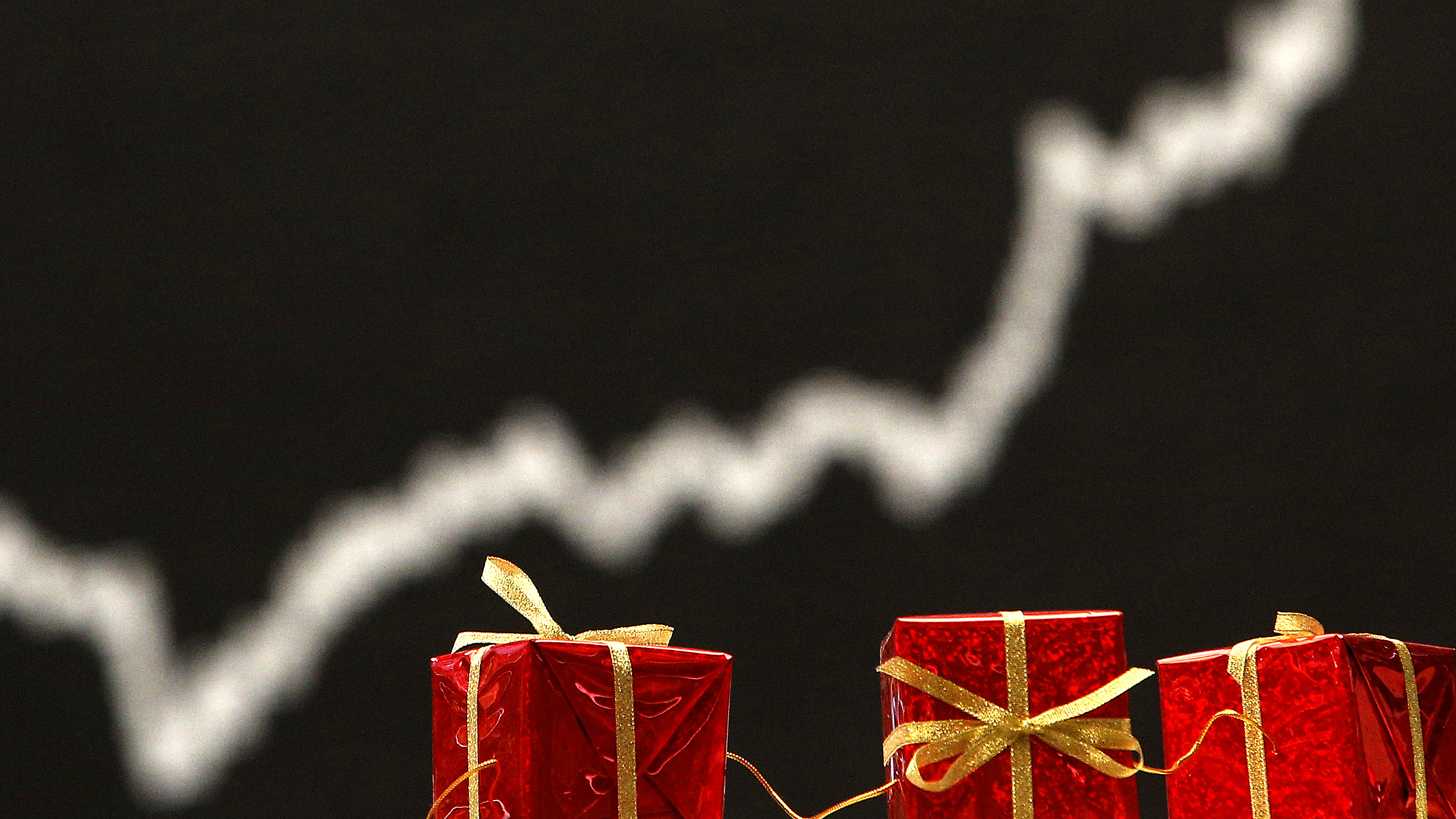Key questions: Why didn’t the recession curb personal debt?
The national economy might be showing signs of recovery, but personal debt has climbed steadily in the last five years. So why are more and more people are putting Christmas on credit?

Despite the financial crash and the period of austerity which has followed amid the recession, personal debt has continued to rise.
So the financial crisis changed nothing?
Not exactly, the crisis was a wake-up call for lots of people. People maxing out their credit cards, for example.
Chris Pond, the former Labour work and pensions minister, told Channel 4 News:
“One major factor was that house values were going up and up each year, and it made people feel richer and that they could afford to borrow more.”
But overall, personal debt problems are not a symptom of the financial crisis or austerity.
The Smith Institute said the problems have been with us for some time:
“Household debt today is much higher than a decade ago…Moreover, indebtedness will not magically disappear when we move from austerity to prosperity,” the think tank said in its report Tomorrow’s Borrowers.
Average household debt now stands at £54,000 – nearly twice the level of a decade ago, according to Maxed Out, a report by the Centre for Social Justice (CSJ).
Why is the problem getting worse?
Mr Pond said the problem is the ever-increasing gap between real income and the rising cost of living.
“These two tectonic plates are moving further apart,” he told Channel 4 News, “And debt is filling the gap between them.”
What’s more, borrowing money is “cheap and easy”, said Paul Hackett, director of the Smith Institute.
Mr Hackett told Channel 4 News: “There are low interest rates, so borrowing is quite cheap. Cheap and therefore quite attractive – and it’s quite accessible now with the internet.”
This is not about misbehaving, people very often have no choice. Chris Pond, former Labour work and pensions minister
But a spokeswoman for the Money Charity told Channel 4 News that it is important to remember that many people simply don’t have a choice, “or certainly feel like they don’t”.
“With living costs going up, and pay rises small or non-existent, large numbers of people are struggling to make ends meet and taking on debt to cover the essentials,” she added.
As Mr Pond said: “This is not about misbehaving, people very often have no choice.”
So why increase debts by putting Christmas on credit too?
According to a new survey by the consumer group Which?, 93 per cent of us feel under pressure to over spend at Christmas.
Mr Pond said: “You can see the pressures – we’re bombarded with images of Christmas, the latest toy, the latest gadget. It’s very, very difficult to say to a child: ‘Father Christmas won’t be bringing that for you’. ‘You don’t deserve it’ is effectively what you’re saying to a small child.
“For single parents this sort of pressure is often too much to bear”, he said.
But being in debt isn’t necessarily a bad thing is it?
Most people are cautious with their money, said Mr Hackett. It is the “usual suspects” – those on very low incomes who “carry debt constantly”, he added.
In both cases, if you can pay it off, then fine.
Credit cards are a part of life for many people, the Money Charity spokeswoman said, adding: “as long as you stay in control of your spending, don’t overstretch yourself and always make sure you have a plan for the repayments, you can enjoy Christmas without the black cloud of the January bills hanging over your head”.
But the worry is that there has been a shift in the mind-set of the younger generation.
Mr Hackett said the bigger crisis is the personal savings crisis.
We’re a nation of shoppers – that’s what people do to relax now. Paul Hackett, director of the Smith Institute
He said: “It’s a pincer movement – rising personal debt is ok if your income and savings go up too, but there’s a problem now with low savings, few assets, no pension and no inheritance.”
Being in debt no longer carries the stigma it once did, he said, adding: “We’re a nation of shoppers – that’s what people do to relax now.”
Mr Pond said that the gap between the poor and the rich has increased as the economy recovers. For the rich, he said we are seeing “the return of buoyancy in the financial services, bonuses and double digit pay rises”.
But for the poor, real wages are falling. “Not only is the gap widening (between real incomes and cost of living) but so is the gap between the better off and poorer.”
The spokeswoman for the Money Charity said the key to good money management is “everything in moderation”.
That might not sound like much fun, but it could lead to a less sobering January.
The charity has an online tool to help set out your Christmas budget on its website here.
-
Latest news
-
As India goes to the polls in the world’s largest election – what do British-Indians think?6m

-
Tees Valley: Meet the candidates in one of the biggest contests coming up in May’s local elections4m

-
Keir Starmer says public sector reform will be a struggle7m

-
Nicola Sturgeon’s husband Peter Murrell charged with embezzlement of funds from SNP1m

-
Ukraine might finally get $60billion in American weapons and assistance to defend against Russia3m

-




